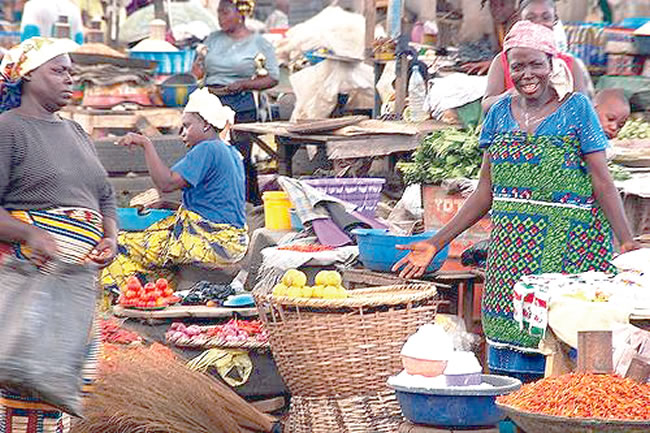The United Nations Children’s Fund(UNICEF) has disclosed that no fewer than 14.5 million Nigerians are facing acute food insecurity as a result of persisting insecurity and the devastating impact of the COVID-19 pandemic.
It warned that the problem is not peculiar to the Northern part of the country alone but it’s happening in all the regions with a variable prevalence of food insecurity.
The UNICEF Nutrition Officer, Nkiru Enwelum stated this at a media dialogue on SDGs as Child Rights with a focus on malnutrition organised by the Child Rights Information Bureau (CRIB) of the Federal Ministry of Information and Culture in collaboration with UNICEF in Enugu.
Enwelum lamented the worsening situation of the burden of malnutrition, stressed that Nigeria is not on the positive side to achieve an end to malnutrition and by extension, achieving the Sustainable Development Goal (SDG) of zero hunger by 2030.
While quoting the latest statistics, Enwelum disclosed that Nigeria did not make any progress on the SDG nutrition targets since 2015 as the country has remained the country with the highest number of malnourished children in Africa and the second highest in the world.
The 2018 Nigeria Demographic and Health Survey, Nigeria has 35 million children under the age of five. Out of which, 14 million are stunted, 3 million are wasted and 24 million are anaemic due to poor nutrition.
The data also showed that 45 percent of deaths in children under the age of five is caused by malnutrition as Nigeria loses 15 percent of her GDP annually to the burden.
“Nigeria was ranked 160th on the 2020 world’s SDG index 2020 from 159th in 2019. SDGs cannot be realized without fulfilling the rights of children”.
“SDGs are therefore rights to be fulfilled. The SDG index above shows that many rights of children are yet to be fulfilled in Nigeria. Hence, Nigeria is far from realizing the SDGs. Embedded in each of the SDGs are several rights of children to be fulfilled without which progress would be made in achieving the SDGs”.
“As Rights, SDGs are universal, indivisible, interdependent and interrelated. As rights, SDGs are duties owed to one(rightholder) by another(dutybearer)”.
In the same vein, a Lecturer from Enugu State University of Science and Technology, Dr Chidi Ezinwa also expressed dismay as he said Nigeria may continue to suffer setback on nutrition targets particularly on SDG goals.
Ezinwa said: “We are making a backward movement. In 2019 we ranked 159th, in 2020, we ranked 160th, but before that time, there was no crisis in different parts of the country. Now that we have this crisis situation, it is reasonable to think that malnutrition will be on the increase because you can’t separate conflict from malnutrition and hunger. Given the situation we are not likely to make any progress”.
Ezinwa further stated that SDGs cannot be realised without recognising and fulfilling the rights of children as he regretted that rising poverty and hunger is denying children of some of their basic rights, such as the right to quality healthcare, and education, among others.
Ezinwa further disclosed that more than 70 percent of Nigerian children live in poverty and 23.3 percent live in extreme poverty.
“The SDG index shows that many rights of children are yet to be fulfilled in Nigeria. Hence, Nigeria is far from realising the SDGs. Children are not objects rather they are human beings and individuals with their own rights. A sustainable future depends on how we meet the needs of children and young people, ” he stressed.






